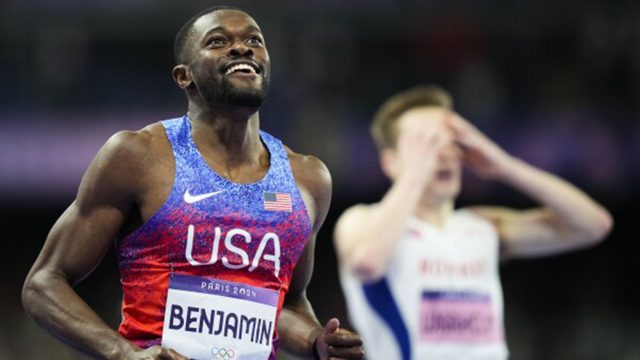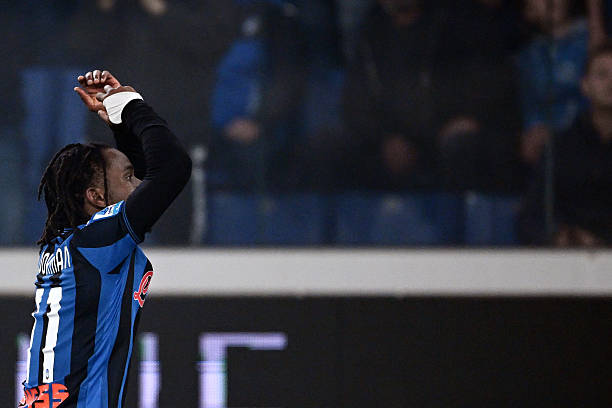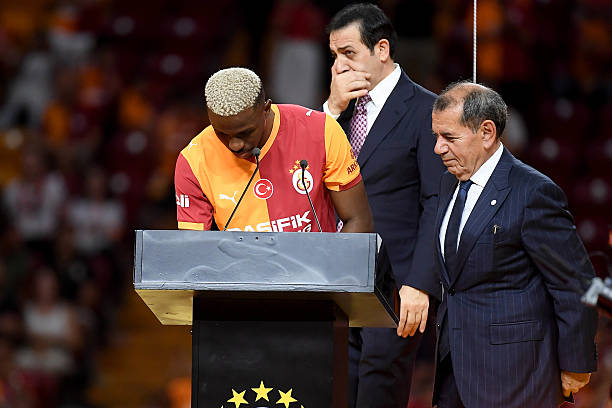In homes, viewing centers, and lively bars across Nigeria and West Africa, anticipation was electric as Ezekiel Nathaniel stepped up for the men’s 400m hurdles final at the World Athletics Championships. Hopes soared nationwide as the young Lagos-born athlete looked set to claim a groundbreaking podium finish, representing not only Nigeria but all of West Africa on the grandest stage of track and field.
The men’s 400m hurdles is notoriously competitive, with athletes from powerful track nations like the United States, Brazil, and Qatar traditionally dominating. On this occasion, the race unfolded with all the drama that could be expected at a world championship: American Rai Benjamin surged across the finish line first, clocking 46.54 seconds, followed closely by Brazil’s Alison dos Santos at 46.84 seconds and Qatar’s Abderrahman Samba with a 47.05 finish. Nathaniel, in a stunning display of speed and composure for a 21-year-old contesting his first-ever global final, crossed at 47.11 seconds — setting a new Nigerian national record.
What followed was a whirlwind of emotion for Nigerian athletics fans. According to event officials, Benjamin was initially disqualified for a lane violation, a rare but not unheard-of occurrence at top-level hurdles events. With this update, Nathaniel was provisionally announced as the bronze medalist, sparking jubilation back home. For several minutes, social media platforms in Nigeria, Ghana, and much of West Africa buzzed with excitement, as supporters believed they had witnessed history: Nigeria’s first-ever medal in the men’s 400m hurdles.
“For a few moments, we thought this was it—the medal drought in hurdles was over!” exclaimed Lagos-based athletics enthusiast Chuka Emenike, who watched the event at a crowded sports lounge in Surulere. “Nathaniel has become a symbol of hope for many young athletes in Nigeria.”
However, the elation would prove to be short-lived. Team USA promptly appealed Benjamin’s disqualification, and after deliberations, event officials reinstated his gold medal position, citing insufficient evidence for the lane infringement. Nathaniel, therefore, was moved back to fourth place, missing a medal by an agonizing 0.06 seconds — a heartbreakingly slim margin in elite athletics.
Despite the disappointment, Nathaniel’s achievement remains nothing short of historic. By not only reaching but competing fiercely in a world final, he ended a 37-year gap since Henry Amike’s last Nigerian appearance at this level in men’s 400m hurdles (1987 World Championships, as noted by the Confederation of African Athletics). More remarkably, Nathaniel’s final time shattered his previous national record — reflecting years of focused training, family support, and the coaching guidance he’s received both in Nigeria and at Baylor University in the United States.
“His effort shows that with dedication and access to quality training, Nigerian athletes can be among the world’s very best,” commented sports development analyst, Ifeanyi Onwubere. “This is not just about one race, but about building an environment where talent like Ezekiel’s can thrive and inspire others.”
For many, Nathaniel’s near-miss highlights systemic challenges facing West African athletes: limited access to elite training facilities, sporadic funding, and disruptions in developmental programs. Ghanaian sports writer Kojo Antwi observed, “Ezekiel’s performance is not just a personal victory, but a call for long-needed investment in athletics infrastructure across the region.”
Indeed, countries across Africa have a rich tradition in sprints and jumps, but hurdles events have been more difficult to break into on the global stage. Until Nathaniel’s recent ascension, only a handful of African athletes from North and East Africa have competed regularly in 400m hurdles world finals. Nigeria’s resurgence in this discipline reflects a broader movement as federations renew focus on grassroots competitions and overseas scholarships.
Nathaniel’s journey captures the spirit of his generation, blending local pride with international ambition. Raised in Lagos, he broke onto the senior stage at national competitions before earning a scholarship to Baylor University, a training ground for several world-class hurdlers. According to his high school coach in Nigeria, “Ezekiel was always disciplined — you could see his hunger to improve.”
Local reactions have ranged from pride to calls for greater support. In Abuja, coach Yetunde Bakare of the Athletics Federation of Nigeria praised Nathaniel’s resilience: “He showed the world that Nigeria is still a powerhouse of raw talent, even if we face setbacks. The next step is for our sports authorities and private sponsors to provide ongoing resources so athletes don’t have to go abroad to reach their full potential.”
Internationally, Nathaniel’s performance did not go unnoticed. According to interviews published by World Athletics (2024), Benjamin himself congratulated the Nigerian runner, noting the high caliber of the competition in this year’s field. Analysts featured on global platforms like BBC Sports and SuperSport emphasized that, although Nathaniel narrowly missed a medal, he pushed medalists to their limits — a sign that the competition landscape in hurdles is evolving beyond its historical centers.
From the wider regional perspective, Nathaniel’s feat has energized discussions about regional collaborations. Sports development advocate Mariam Soule, speaking from Accra, remarked, “Performances like this break down stereotypes and remind us that Africa—West Africa, especially—can produce world champions if the blueprint is right.”
As the dust settles, questions linger about how athletics authorities, sponsors, and communities will harness this momentum. Will this near-podium finish spur greater investment in youth programs? Can Nigeria and neighboring countries turn individual brilliance into a pipeline for consistent global success? And how might fans sustain their enthusiasm and advocacy beyond one special evening?
For now, Ezekiel Nathaniel’s breakthrough stands as a testament to perseverance, skill, and rising aspirations in Nigerian sport. His journey is already inspiring a new wave of school athletes and sparking pride not just at home, but across Africa and the diaspora. The heartbreak of missing the podium may fade, but the records broken and barriers challenged will resonate for years to come.
What do you think about Ezekiel Nathaniel’s historic run and the future of hurdling in Nigeria and West Africa? Should governments and the private sector do more to support emerging athletes? Drop your thoughts in the comments and let’s keep the conversation going!
Have a sports story, tip, or inspiring athletics moment you want to share or sell? We’d love to hear your stories! Reach us at story@nowahalazone.com to get your feature published or discuss story sales.
For general support, questions, or to send in your opinions, email support@nowahalazone.com.
Don’t forget to connect with us and join the conversation: follow us on Facebook, X (Twitter), and Instagram for the latest in sports news, updates, and behind-the-scenes stories!









